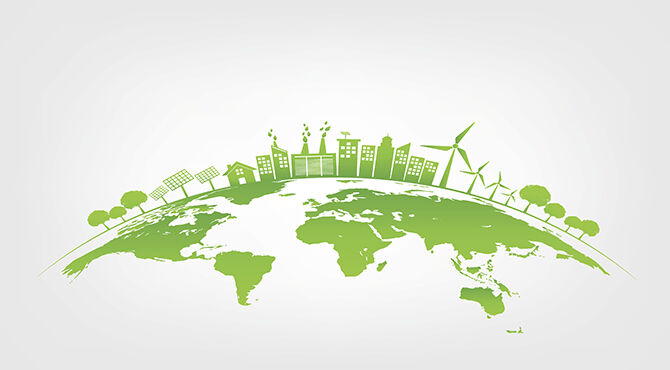The Future of Sustainability: How Climate Change is Shaping Our World in 2025
The Future of Sustainability: How Climate Change is Shaping Our World in 2025

As we approach 2025, climate change is no longer just an environmental concern; it’s a global challenge that impacts every aspect of society. From rising temperatures and extreme weather events to economic shifts and policy changes, sustainability is now more crucial than ever. As the planet faces these unprecedented challenges, businesses, governments, and individuals are realizing the urgency of embracing sustainable practices to mitigate the effects of climate change.
The Rising Impact of Climate Change
In the last decade, we have witnessed the devastating effects of climate change, from more frequent wildfires and flooding to the depletion of natural resources. By 2025, climate models predict that global temperatures will continue to rise, leading to severe consequences for ecosystems and human health. These shifts are already leading to longer heatwaves, stronger hurricanes, and rising sea levels, which pose a threat to both wildlife and human populations, particularly in coastal areas.
The Role of Renewable Energy
One of the most promising solutions to combat climate change is the shift toward renewable energy sources. By 2025, the world is expected to see a significant increase in solar, wind, and hydroelectric power generation. The costs of these energy sources have dropped substantially in recent years, making them more accessible to both businesses and consumers. As more countries commit to net-zero emissions targets, the demand for clean energy solutions will continue to grow, with governments offering subsidies and tax incentives to encourage the adoption of renewable technologies.
Sustainable Agriculture and Food Systems
Sustainability in agriculture is another major area that will shape the world in 2025. The global population is projected to reach 8 billion by this time, and as a result, the demand for food will increase. However, current farming practices are unsustainable, with overuse of land, water, and chemicals leading to soil depletion and pollution. Innovations such as vertical farming, sustainable livestock management, and plant-based food production are being adopted to reduce the environmental footprint of food systems.
Additionally, regenerative agriculture—a practice that restores soil health and promotes biodiversity—will become a key trend. By integrating these practices, we can build more resilient food systems that are less dependent on fossil fuels and less damaging to the environment.
Circular Economy and Waste Reduction
The concept of a circular economy is gaining momentum as a solution to reduce waste and preserve resources. By 2025, the transition to circularity will be more widespread, with businesses adopting practices that reduce, reuse, and recycle materials rather than relying on a linear “take-make-dispose” model. Companies will focus on creating products with longer life cycles, utilizing sustainable materials, and designing for recyclability.
The use of plastic alternatives, like biodegradable materials, is expected to grow as consumers and companies shift towards eco-friendly options. The zero-waste movement is also gaining traction, encouraging individuals to reduce their consumption of single-use plastics and adopt sustainable practices in daily life.
The Role of Policy and Global Cooperation
By 2025, governments and international organizations will play an essential role in shaping the future of sustainability. Policies aimed at reducing greenhouse gas emissions, regulating pollution, and supporting green innovation will be central to driving global efforts to combat climate change. International agreements like the Paris Agreement will continue to serve as a framework for countries to meet climate targets and invest in sustainable solutions.
Climate justice will be a key area of focus, as the impacts of climate change disproportionately affect marginalized communities. Governments will need to ensure that climate adaptation and mitigation efforts are inclusive and equitable, addressing the needs of vulnerable populations.
Conclusion
By 2025, climate change will continue to shape the world we live in, influencing everything from energy production to agricultural practices and waste management. The future of sustainability lies in a combination of technological innovation, policy initiatives, and individual action. As businesses, governments, and consumers come together to adopt sustainable solutions, there is hope that we can mitigate the effects of climate change and create a more sustainable world for future generations.
.png)